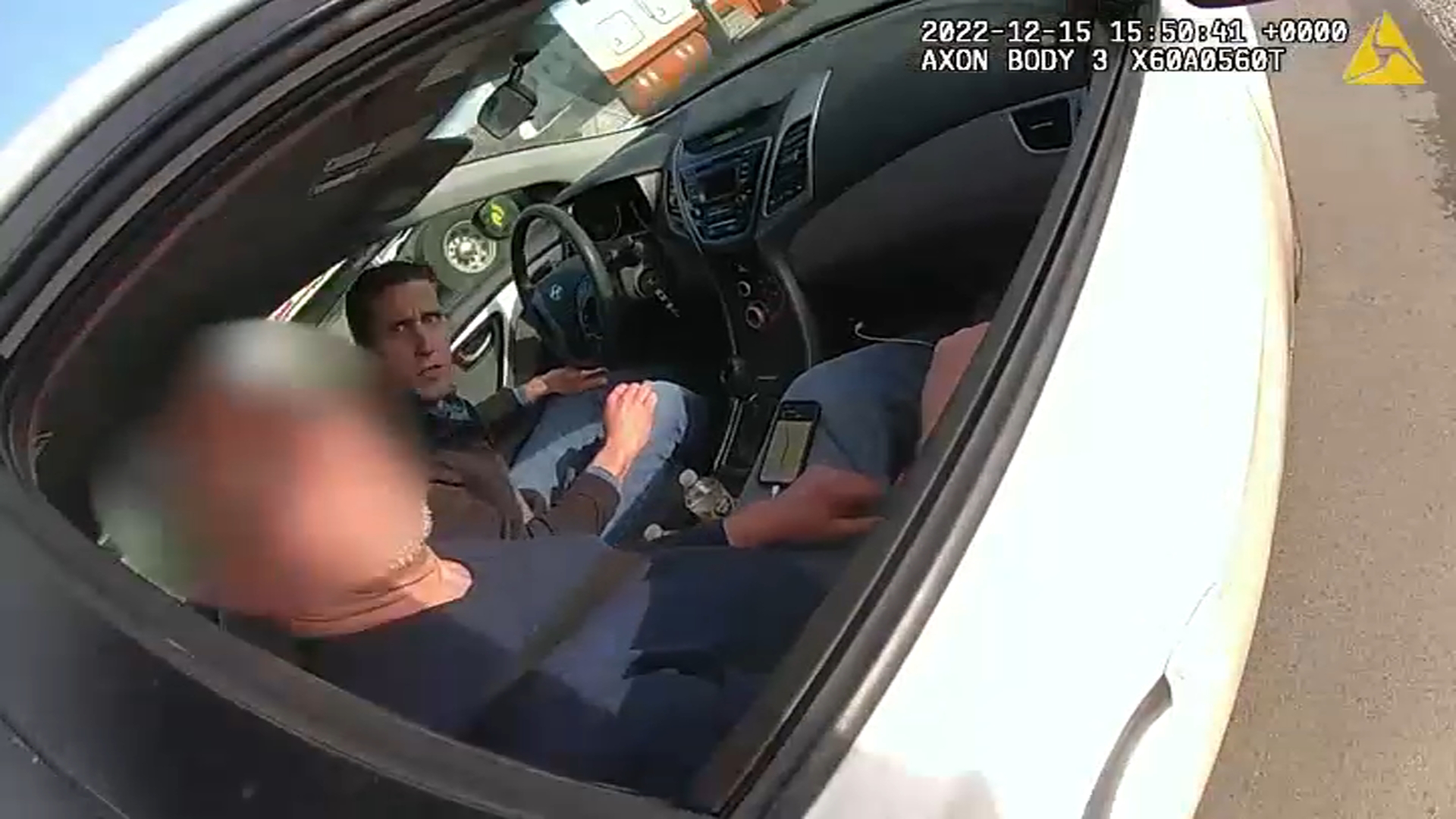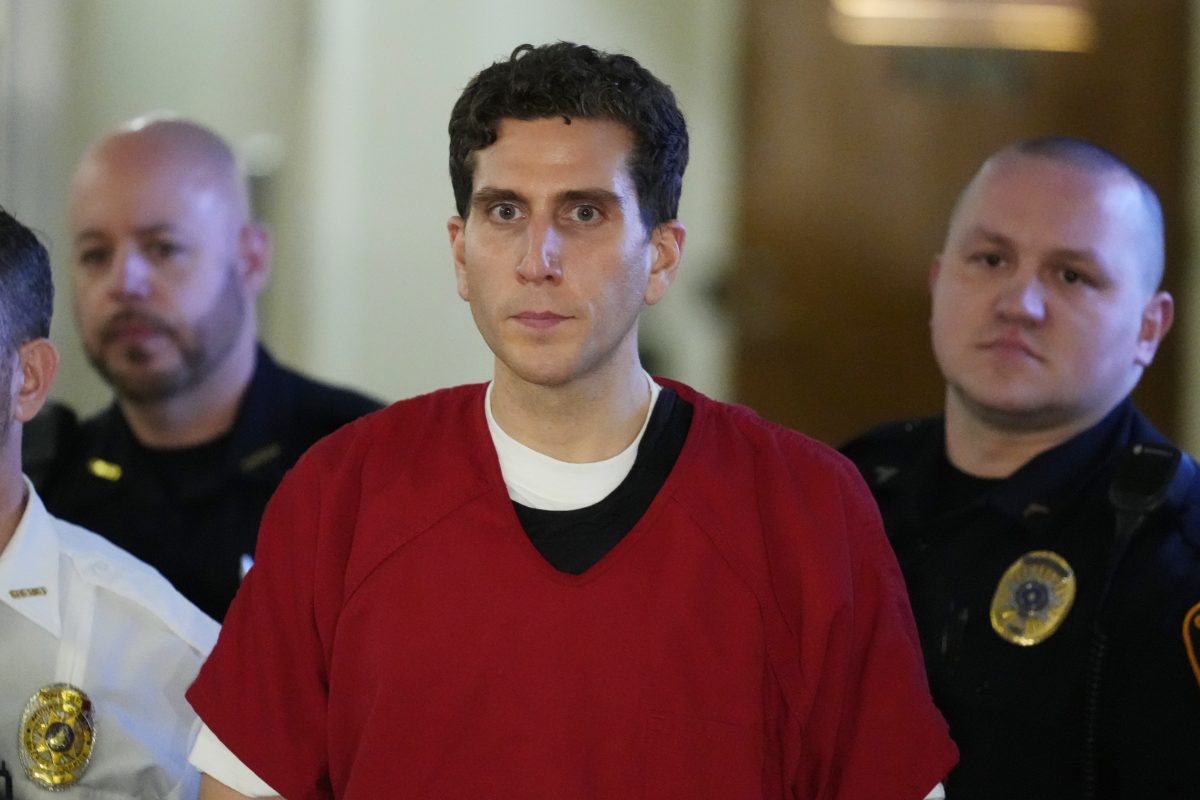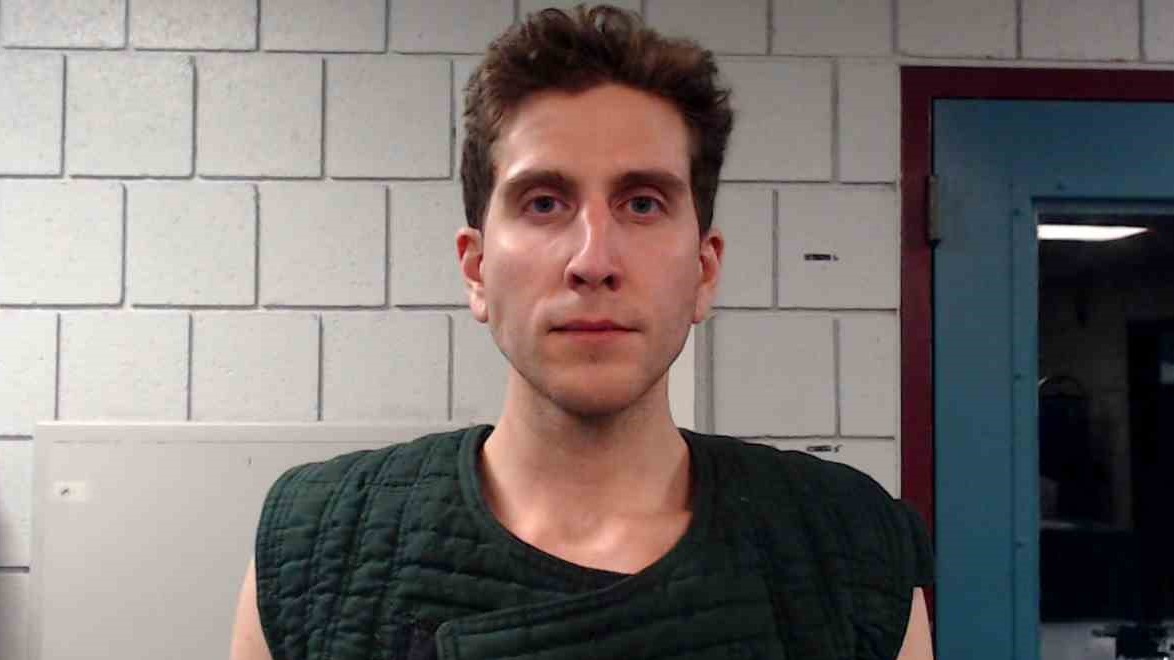What to Know
- A criminology graduate student accused of the November slayings of four University of Idaho students has agreed to be extradited from Pennsylvania, where he was arrested. Bryan Kohberger appeared in court on Tuesday.
- He's been charged with four counts of first-degree murder and one count of burglary. Investigators have said they are still looking for a murder weapon and a motive for the killings of Kaylee Goncalves, Madison Mogen, Xana Kernodle and Ethan Chapin.
- More details about the case are expected to be released after the 28-year-old doctoral student arrives in Idaho and an affidavit is unsealed.
A criminology graduate student accused of the November slayings of four University of Idaho students agreed Tuesday to be extradited from Pennsylvania, where he was arrested last week, to face charges in Idaho.
Bryan Kohberger, a 28-year-old doctoral student at Washington State University — a short drive from the scene of the killings across the state border — will be transported to Idaho within 10 days.
Students at the University of Idaho and nearby residents lived in fear for weeks as authorities seemed stumped by the mysterious and brutal stabbings on Nov. 13. Idaho police appeared to make a breakthrough, however, after searching for a white sedan seen around the time of the killings and analyzing DNA evidence at the crime scene.
Get top local stories in Philly delivered to you every morning. >Sign up for NBC Philadelphia's News Headlines newsletter.
Investigators have said they are still looking for a murder weapon and a motive for the killings. More details about the case are expected to be released after Kohberger arrives in Idaho and an affidavit is unsealed.
But attorneys, law enforcement officers and others involved in the case won't be able to discuss the affidavit or other court documents after an Idaho magistrate judge on Tuesday evening issued a so-called gag order barring officials from talking publicly about many aspects of the case outside of court.
Judges sometimes issue the orders when they fear that pretrial publicity could prevent a defendant from getting a fair trial.
Wearing a red jumpsuit with his hands shackled in front of him, Kohberger showed little emotion during Tuesday's brief hearing in a Pennsylvania courtroom in which he acknowledged facing four counts of first-degree murder and a burglary charge.
Kohberger, who was arrested by state police at his parents’ home in eastern Pennsylvania on Friday, will be held at a jail in Monroe County, Pennsylvania, until his extradition.
Kohberger’s parents and sisters sat in the front row of the courtroom gallery, behind the defense table. His mother and his sister Melissa broke down as he walked into the courtroom, sobbing quietly and holding one another. A sheriff’s deputy brought them a box of tissues. Kohberger glanced at his family briefly as he was led out of the courtroom.
Latah County prosecutors in Idaho have said they believe Kohberger broke into the victims’ home near the university campus intending to commit murder.
The students were: Kaylee Goncalves, 21, of Rathdrum, Idaho; Madison Mogen, 21, of Coeur d’Alene, Idaho; Xana Kernodle, 20, of Post Falls, Idaho; and Ethan Chapin, 20, of Conway, Washington. They were close friends and members of the university’s Greek system.
Mogen, Goncalves and Kernodle lived in the three-story rental home with two other roommates. Kernodle and Chapin were dating, and he had been visiting the house that night.
The killings have left the rural town of Moscow, Idaho, deeply shaken, and police have released few details about the investigation. For weeks, the Moscow Police Department faced heavy criticism for telling frightened residents that there was no great risk to the community, even though a suspect had not been named.
University officials hired extra security to escort students across campus, but nearly half of the 11,500-student body temporarily left campus for the perceived safety of online classes.
Would-be sleuths attempted to fill the void with their own theories online — some of them targeting friends and acquaintances of the slain students with hurtful and inaccurate allegations.
The chief public defender in Monroe County said his client is eager to be exonerated. Kohberger should be presumed innocent and "not tried in the court of public opinion,” said the public defender, Jason LaBar.
After Tuesday's hearing, LaBar described Kohberger as “an ordinary guy,” and said that after his extradition he would be represented by the chief public defender in Kootenai County, Idaho.
Capt. Anthony Dahlinger, of the Moscow Police Department in Idaho, told The Associated Press on Saturday that authorities believe Kohberger was responsible for all four slayings at a rental home near campus.
“We believe we’ve got our man,” said Dahlinger, adding that investigators obtained samples of Kohberger’s DNA directly from him after he was arrested.
Pennsylvania State Police Maj. Christopher Paris said Tuesday that Kohberger's warrant merited an after-dark arrest, which requires a higher standard of probable cause.
“We wanted to go in at a time when we thought it would be the safest for everybody. Safest for anybody else in the house, safest for Mr. Kohberger and safest for our people,” he said.
A tactical response team reviewed floor plans of the home, and broke multiple doors and windows when they entered, Paris said.
In her gag order — formally called a “non-dissemination order” — Latah County Magistrate Judge Megan Marshall prohibited people involved in the case from talking about anything “reasonably likely to interfere with a fair trial of this case.” That includes details about any evidence, the existence of any confessions or other statements given by the defendant, or the merits of the case, Marshall wrote in the order.
The gag order will last until a verdict is given or it modified by the court. The paper documents filed in the criminal case are still expected to be open to the public once Kohberger arrives in Idaho, however.
DNA evidence played a key role in identifying Kohberger as a suspect, and officials were able to match his DNA to genetic material recovered during the investigation, a law enforcement official said last week. The official spoke on condition of anonymity because they were not authorized to publicly discuss details of the ongoing investigation.
In addition to the DNA evidence, authorities also learned Kohberger had a white Hyundai Elantra, the official who spoke anonymously said.
Moscow police had already identified a white Hyundai Elantra seen near the scene of the crime, and asked the public for help finding the white sedan. Tips poured in, and Idaho investigators soon were trying to narrow down a list of roughly 20,000 possible vehicles to find the right one.
The Indiana State Police announced Tuesday that on Dec. 15, a trooper stopped a white Hyundai Elantra on Interstate 70 for following too closely. A body camera worn by the trooper appeared to show Bryan Kohberger in the driver's seat, the police said. At the time, there was no information available to the trooper that would have identified Kohberger as a suspect in the Idaho killings, the agency said, and he was released with a verbal warning.
Kohberger had also been stopped a few minutes earlier by a deputy from the Hancock County Sheriff's Department for following too closely, and given a verbal warning, the sheriff's department said.
Federal and state investigators are combing through Kohberger's background, financial records and electronic communications as they work to build the case against him, the official who spoke anonymously said. The investigators are also interviewing people who knew Kohberger, including those at Washington State University, the official said.
Kohberger's relatives in Pennsylvania have expressed sympathy for the families of the victims but vowed to support him and promote “his presumption of innocence.”
Investigators have asked for information about Kohberger from anyone who knows him, and Dahlinger said investigators got 400 calls to a tip line within the first hour of that request. He said they were “trying to build this picture now of him: Who he is, his history, how we got to this event, why this event occurred.”
Boone contributed to this report from Boise, Idaho.
Sign up for our Breaking newsletter to get the most urgent news stories in your inbox.




